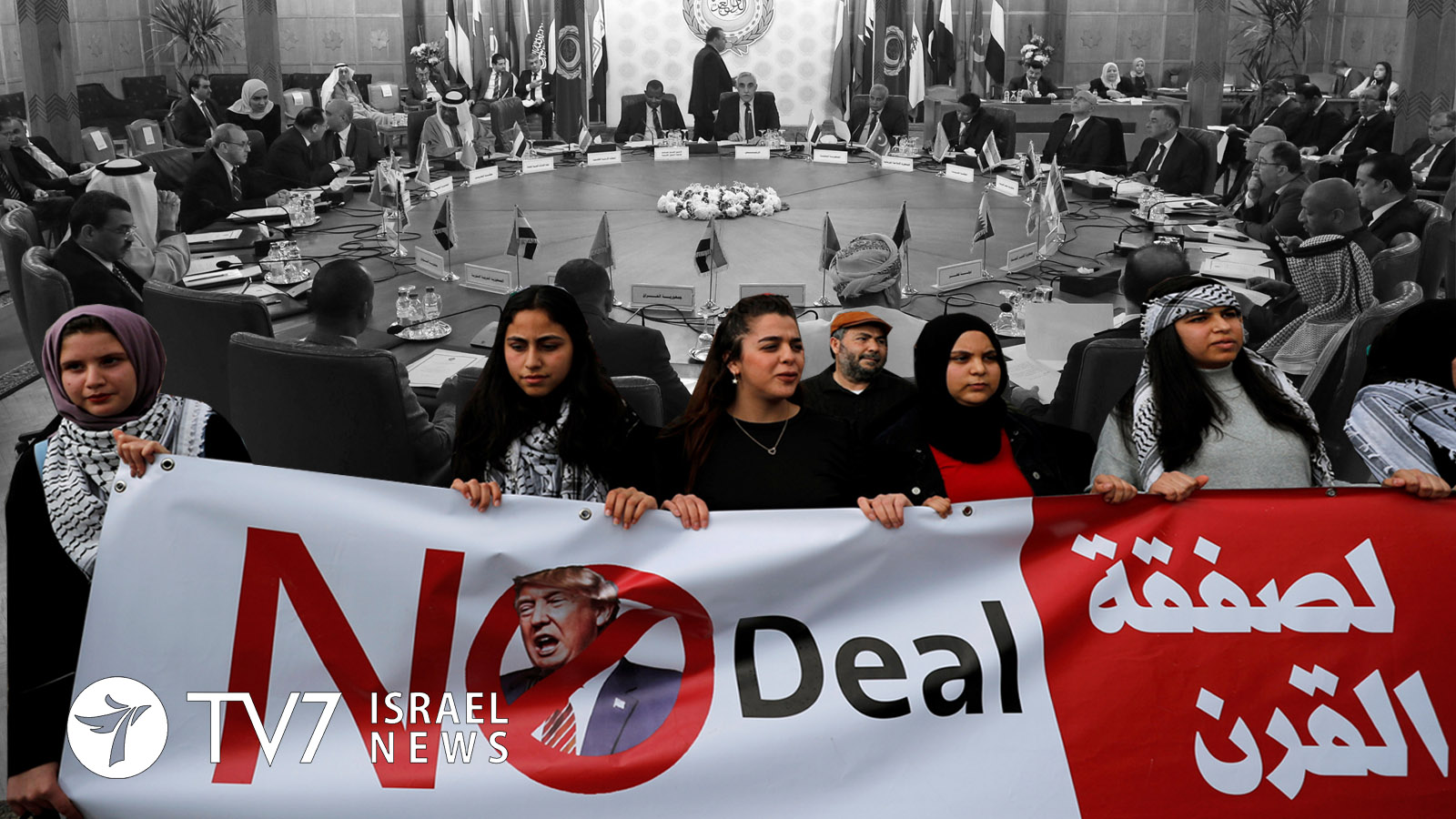A wave of protests against the United States Peace Plan to resolve the Israeli-Palestinian conflict has swept the Gaza Strip, West Bank and Israel’s neighboring states.
Israeli security forces managed to mitigate clashes that erupted at several flash points across West Bank. Several mass demonstrations were held in the Gaza Strip, where Islamists burned U.S. and Israeli flags, as well as posters of their respective leaders, President Donald Trump and of Prime Minister Benjamin Netanyahu.
During one rally, Hamas official Mushir Al-Masri defiantly shouted that demands of the so-called “Deal of the Century” for Jihadist groups in Gaza to be disarmed will never actualize, because “Our weapons are our souls, and our resistance is our life.”
A wave protests against the United States’ Peace Plan to resolve the Israeli-Palestinian conflict have swept the Gaza Strip, West Bank and Israel’s neighboring states.
Israeli security forces managed to mitigate clashes that erupted at several flashpoints across West Bank. Several mass demonstrations were held in the Gaza Strip, where Islamists burned U.S. and Israeli flags, as well as posters of their respective leaders, President Donald Trump and of Prime Minister Benjamin Netanyahu. During one rally, Hamas official Mushir Al-Masri defiantly shouted that demands of the so-called “Deal of the Century” for Jihadist groups in Gaza to be disarmed will never actualize, because “Our weapons are our souls, and our resistance is our life.”
An emergency meeting of the Arab League in Egypt concluded with a unanimous decision by the 22-member organization against cooperation of any kind with the American peace initiative that could lead to its implementation. Palestinian President Mahmoud Abbas told the Arab Foreign Ministers that the United States “took 30% of the West Bank” and left only 11% of what he defined as “historic Palestine.”
The Palestinian leader insisted that even though his people were entitled to 100% of the land, they were willing to negotiate on the basis of the 1967 lines – which he said amounted to 22% of the entire territory. Moreover, he maintained that “The deal is completely rejected since they announced the entirety of Jerusalem as the capital of Israel, but we still believe in peace and the culture of peace based on the creation of a multi-party international mechanism like the International Quartet.”
It is important to note that Washington’s proposal, entitled “Peace to Prosperity: A Vision to Improve the Lives of the Palestinian and Israeli People” purports to provide for the possibility of a Palestinian state with limited autonomy over some 70% of the West Bank.
President Abbas eventually used the Cairo forum to declare an end of all Palestinian Authority cooperation with both the United States and Israel, even on security related measures. “This is in light of your renouncing of all signed agreements under the international legitimacy,” accused the 84-year-old leader, concluding, “You Israelis should bear the full responsibility as a force of occupation.”
In support of the Palestinians, Arab League Secretary General Ahmed Aboul Gheit warned that the American plan would “plant the seeds for a hundred more years of conflict and suffering” and called for both parties to negotiate a solution with which “both (sides) can accept and live.” “ The starting point of these negotiations cannot be based on the maximum of one side’s demands and the complete disregard to the views of the other side,” said Aboul Gheit, going on to question, “The solution in its main points and details cannot be predetermined, what would be the point of negotiations otherwise?”
All the top diplomats of the League adopted the Palestinian position, while cautioning there could be no peace without a comprehensive solution and recognition of Palestinian rights and. “Reaching a fair resolution to the Palestinian issue, represented in the establishment of the independent and sovereign Palestinian state with east Jerusalem as its capital, is key to guarantee peace and stability in the Middle East,” said Egyptian Foreign Minister Sameh Shoukry, adding “in a way that allows this region to move forwards toward development and prosperity in its entirety.”
It should be noted that the ambassadors of the Gulf Arab states of Oman, Bahrain and the United Arab Emirates were present at the White House during President Trump’s unveiling of his long-awaited plan, while standing alongside Israeli Prime Minister Netanyahu.
